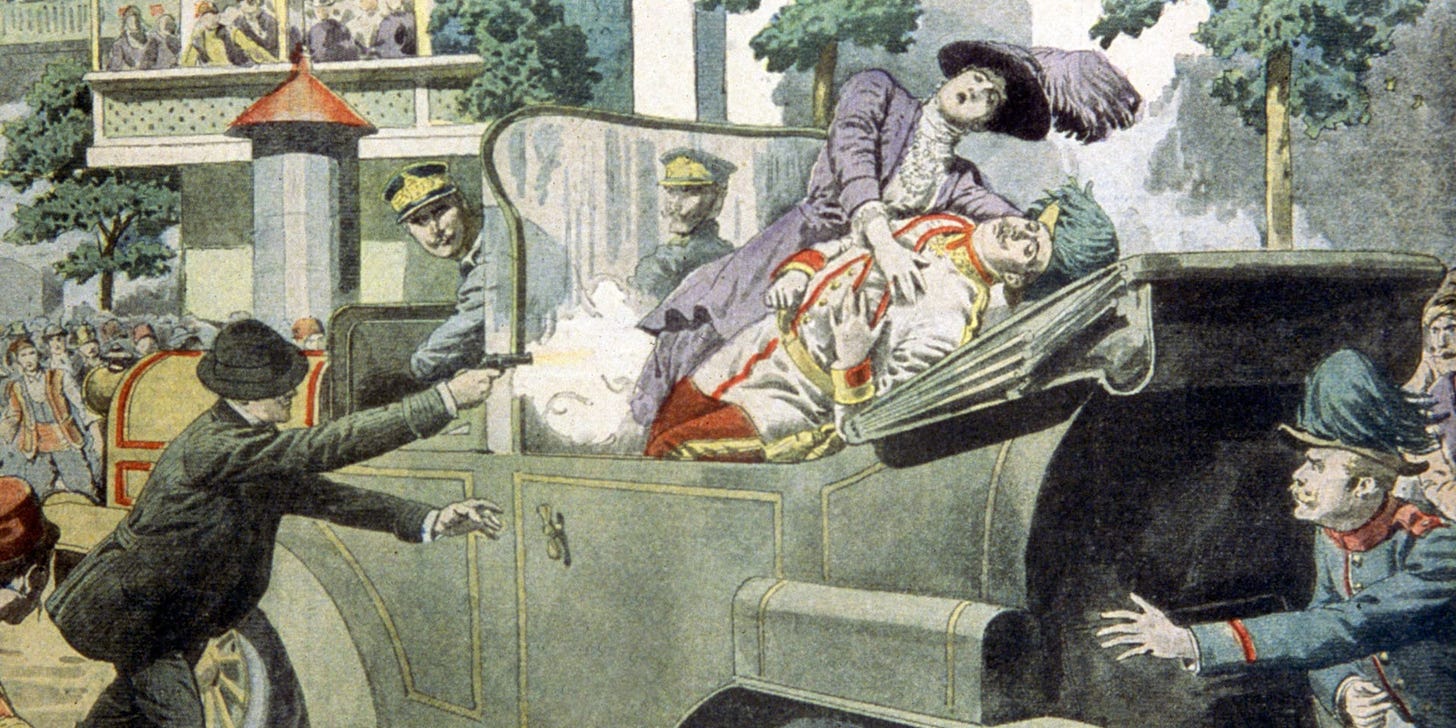The obscure coup that changed the world forever
In 1903, Serbia got a new king with a new anti-Habsburg foreign policy and the world got a Great War.

I’m sort of obsessed with World War I as a hinge point of all modern history.
It was an extremely consequential event and also a highly contingent one. Not only because there were things the Central Powers could have plausibly done to win the war, but because the particular timing and manner of the Allied victory was very important. It created the bizarre situation in which the Russian Empire collapsed after the October Revolution, only for the Germans to then be defeated, leaving Lenin’s regime space to entrench itself. The multi-ethnic Habsburg Empire was portrayed for most of the 20th century as intrinsically doomed, but now that the European Union has essentially reinvented some of its core concepts, the empire’s doom appears much less inevitable to me.
And we haven’t even considered the question of origins.
World War I had, famously, deep structural origins. But it did also stem quite directly from an assassin’s bullet. It’s unfashionable in some quarters to emphasize contingency in history, but it’s clear that small changes do sometimes have big effects.
If the F.B.I. had disrupted the 9/11 hijacking plot, the whole course of both domestic policy and American policy toward Afghanistan and probably Iraq would have been different. Similarly, it’s easy to imagine Donald Trump taking a pass on the 2016 presidential election and just continuing to coast as a rich celebrity.
And one thing that’s particularly odd about the assassination that set off World War I is that it was conducted on behalf of an ideology of Yugoslav nationalism that doesn’t really exist anymore.
On the eve of the war, the independent state of Serbia was diplomatically aligned with Russia and hostile to Austria-Hungary. There were also some Serbs living in Habsburg territory. But most of the future Yugoslavs under Habsburg rule were Slovenians, Croatians, or Bosniak Muslims. What transformed an awkward-but-manageable question about Serbia’s relationship to ethnic Serbs under Habsburg rule into an unmanageable conflict driven by Serbia’s desire to fully seize Bosnia-Herzegovina, Croatia, and Slovenia from the Austrians was the idea that these ethnicities were really all part of one nation.
If you squint at the relevant languages, that idea — Yugoslavism — is plausible enough. But it’s also clearly contestable. So contestable that it was dissolved in a series of bloody wars in the 1990s.
The Serbian state’s pre-World War I embrace of Yugoslavism, meanwhile, was of quite recent vintage.
For roughly a century, Serbian politics had been defined by a struggle between the Austrian-backed House of Obrenović and the Russian-backed Karađorđević dynasty. The Obrenovićs held the upper hand for most of this time, but were removed from power in a June 1903 coup d’état, which is annoyingly known to history as the May Coup because Serbia used the Julian calendar at the time.1
If this coup had gone the other way, that wouldn’t have single-handedly solved all the Habsburg Empire’s problems. But it would have meant that state-sponsored terrorists wouldn’t have been trying to assassinate their royal family, with the Tsar committed to backing Serbia in the ensuing crisis. Which means these fairly obscure turn-of-the-previous-century political machinations within Serbia turned out to have staggering consequences for global history.
Keep reading with a 7-day free trial
Subscribe to Slow Boring to keep reading this post and get 7 days of free access to the full post archives.

